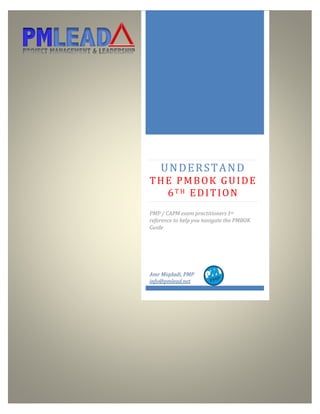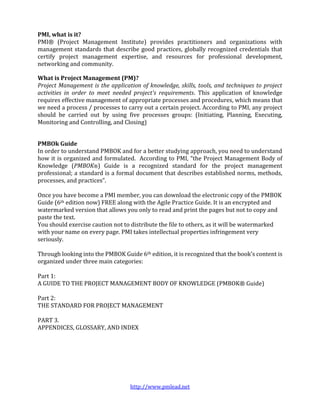The document provides an overview of the PMBOK Guide (6th edition) and outlines its significance in project management as well as the processes and knowledge areas it encompasses. It explains that project management involves applying skills and techniques through five main process groups: initiating, planning, executing, monitoring and controlling, and closing. Additionally, it emphasizes the importance of understanding the relationship between knowledge areas and processes for effective project execution while reminding readers that PMBOK serves as a standard rather than a methodology.




